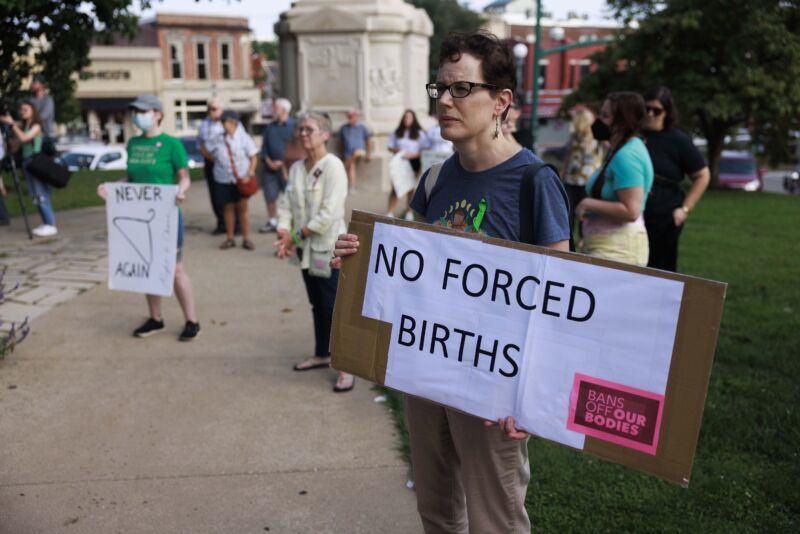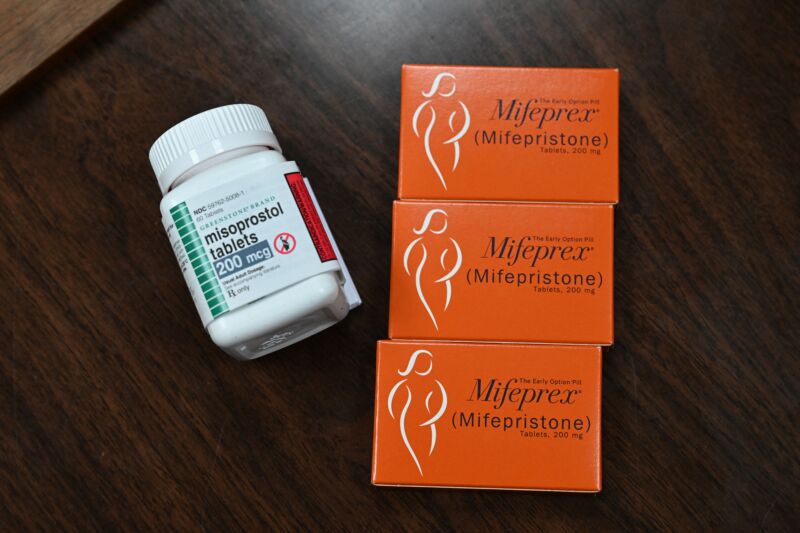In abortion ban states, sterilization spiked after Dobbs and kept climbing

Enlarge / A woman holds a placard saying "No Forced Births" as abortion rights activists gather at the Monroe County Courthouse for a protest vigil a few hours before Indianas near total abortion ban goes into effect on September 15, 2022. (credit: Getty | Jeremy Hogan)
The more abortion access is jeopardized, the more women turn to sterilization, according to a new report in JAMA that drew on health insurance claims of nearly 4.8 million women in the US.
In states that enacted total or near-total abortion bans following the US Supreme Court's Dobbs decision in June 2022, the rate of sterilizations among reproductive-age women that July spiked 19 percent. A similar initial spike was seen across the nation, with states that either limited or protected access to abortions seeing a 17 percent increase.
But, after that, states with bans saw a divergent trend. The states that limited or protected abortion access saw sterilization procedures largely level off after July 2022. In contrast, states with bans continued to see increases. From July 2022 to December 2022, use of sterilization procedures increased by 3 percent each month.
